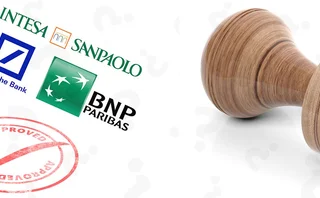
A cattle market?
If there's one thing America is very good at, it's coming down on white-collar crime. Enron, MCI WorldCom, Martha Stewart - they've all faced the wrath of the law. Last month, it was the turn of the credit rating agencies. While it would be incorrect to suggest that they've done anything criminal, that hasn't meant they've escaped the scrutiny of the law enforcers.
First up - New York Attorney General Andrew Cuomo. Cuomo is the new Elliot Spitzer - the New York governor who resigned in March because of his involvement with a high-priced prostitution ring, but who formerly found glory as an attorney general bringing the excesses of Wall Street to account. Cuomo's mandate is much the same, except this time it's about subprime.
Spitzer exposed the nefarious investment banking activity of spicing up stock research reports to sell services. Cuomo has been investigating the conflict of interest issue that has been raised because rating agencies receive fees for their services. He's struck a deal with the three major international rating agencies which stops the practice of 'ratings shopping', where it was alleged that ratings agencies benefited from relaxing their standards in order to attract business (see page 22-25).
The Securities and Exchange Commission (SEC) has also turned its spotlight on the agencies. In July, it issued a report following a ten-month review of rating agency practices which found that the firms improperly managed conflicts of interest and violated internal procedures in granting top rankings to mortgage bonds (see News in Brief, page 5). During the review, the SEC had access to over two million emails and internal communications at the firms. Some of the content defies belief.
"Let's hope we are all wealthy and retired by the time this house of cards falters," one analyst wrote to a colleague.
"I am trying to ascertain whether we can determine at this point if we will suffer any loss of business because of our decision and if so how much," said a 2004 email sent by one analyst to a senior business manager.
In another internal communication, two analysts at a rating company discussed whether they should grade an offering. "One analyst expressed concern that her firm's model did not capture 'half' of the deal's risk, but that 'it could be structured by cows and we would rate it'," the SEC said.
S&P and Moody's have responded with promises of process improvement and reform, while Fitch reportedly says it hasn't been informed of "any finding" that is "inconsistent" with the company's code of conduct.
Now the SEC and lawmakers are turning their attention to the question of enforcement, though it is still unclear what shape, if any, that might take.
William Rhode, editor.
Only users who have a paid subscription or are part of a corporate subscription are able to print or copy content.
To access these options, along with all other subscription benefits, please contact info@risk.net or view our subscription options here: http://subscriptions.risk.net/subscribe
You are currently unable to print this content. Please contact info@risk.net to find out more.
You are currently unable to copy this content. Please contact info@risk.net to find out more.
Copyright Infopro Digital Limited. All rights reserved.
You may share this content using our article tools. Printing this content is for the sole use of the Authorised User (named subscriber), as outlined in our terms and conditions - https://www.infopro-insight.com/terms-conditions/insight-subscriptions/
If you would like to purchase additional rights please email info@risk.net
Copyright Infopro Digital Limited. All rights reserved.
You may share this content using our article tools. Copying this content is for the sole use of the Authorised User (named subscriber), as outlined in our terms and conditions - https://www.infopro-insight.com/terms-conditions/insight-subscriptions/
If you would like to purchase additional rights please email info@risk.net
More on Regulation
One year on, regulators still want a cure for bank runs
Broad support for higher outflow assumptions on uninsured deposits, but that won’t save insolvent banks
Watchlist and adverse media monitoring solutions 2024: market update and vendor landscape
This Chartis report updates Watchlist monitoring solutions 2022 and focuses on solutions for sanctions (name and transaction) screening and monitoring adverse media and its related elements
Basel Committee reviewing design of liquidity ratios
Focus on LCR and NSFR after Silicon Valley Bank and Credit Suisse, but assumptions may not change
Risk, portfolio margin, regulation: regtech to the rescue
A white paper outlining the complexity of setting the course for risk, margin and regulation
Prop shops recoil from EU’s ‘ill-fitting’ capital regime
Large proprietary trading firms complain they are subject to hand-me-down rules originally designed for banks
Revealed: the three EU banks applying for IMA approval
BNP Paribas, Deutsche Bank and Intesa Sanpaolo ask ECB to use internal models for FRTB
FCA presses UK non-banks to put their affairs in order
Greater scrutiny of wind-down plans by regulator could alter capital and liquidity requirements
Industry calls for major rethink of Basel III rules
Isda AGM: Divergence on implementation suggests rules could be flawed, bankers say
Most read
- Basel Committee reviewing design of liquidity ratios
- Breaking out of the cells: banks’ long goodbye to spreadsheets
- Too soon to say good riddance to banks’ public enemy number one







